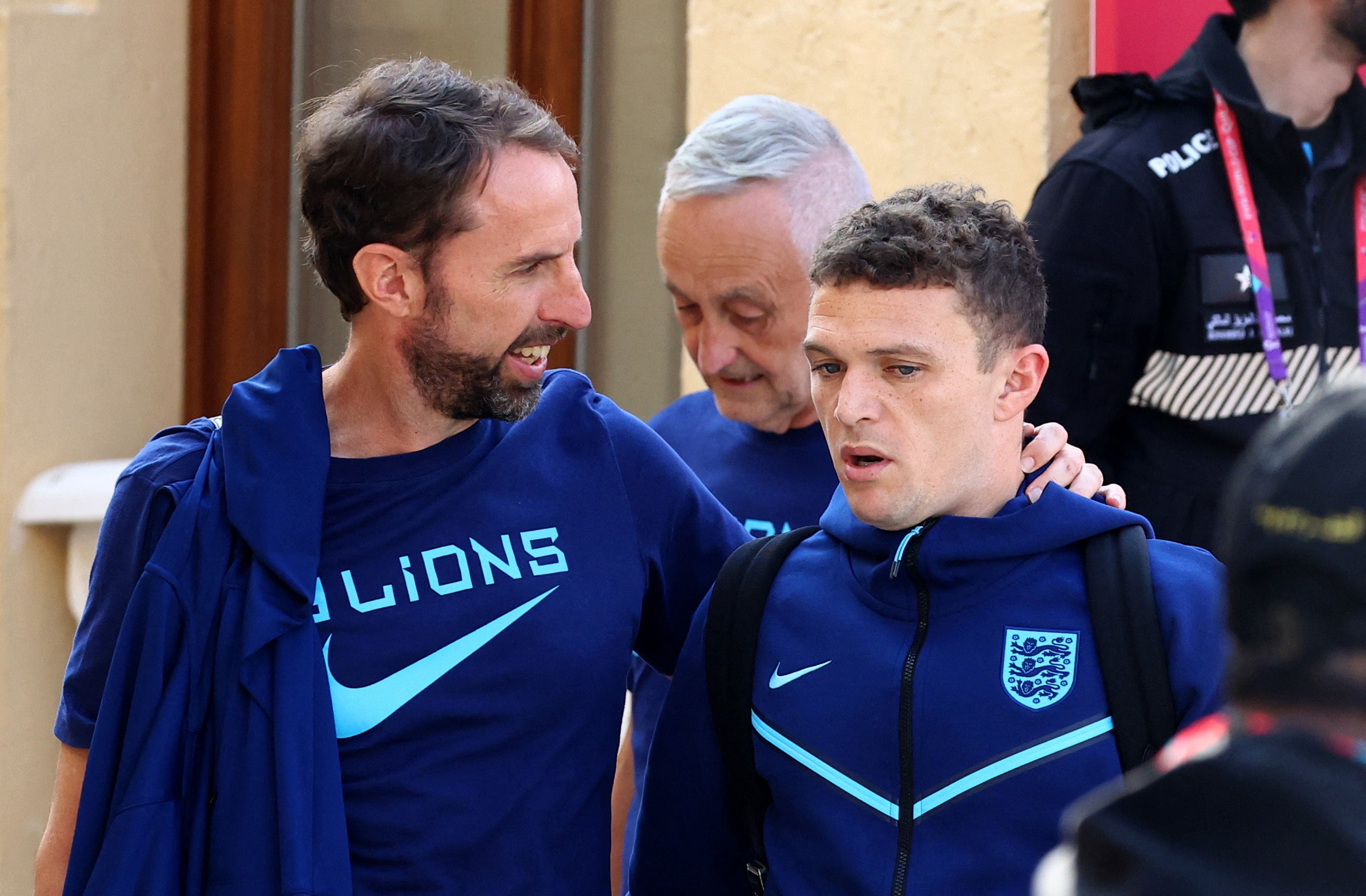England has a team and a coach to be proud of
Editorial: A quarter-final exit is wearyingly familiar, but this time, it feels different

Disappointment is a feeling to which England football fans need no fresh introductions. But we are having to learn to live with a new one too: hope. And real hope, not the futile hope of many decades gone. England were second best to the world champions, but it was a close contest. France were rattled, and on a different night, they might have lost.
This, to be blunt, is not how it was for a very long time. But it is how it looks set to be for a fair while yet. England’s young team remains an inspiration in so many ways. United off and on the pitch, champions of social justice and very easy to like and admire. These qualities are well established now, taken almost for granted. But they, for the most part, have long, good years ahead of them.
What is new is that the England football team is no longer seemingly destined to be less than the sum of its parts, that the team is at home – almost – amongst the big boys and the big boys respect them.
A quarter-final exit is wearyingly familiar but this time it feels rather different. The team did not underwhelm, either in aptitude or attitude. England never came close for so long, and this concealed the reality that the very last step – the winning – has always been the hardest.
The England team may always be foiled by that last step. They are highly talented, but so are others. But watching them try is, one hopes, not going to be an exercise in neurotic dysfunction. They can be relied upon to do their best, and their endeavours will be things to treasure, not despair at.
It may be said that there is not a huge amount out there at the moment to give one a sense of pride in being English. The England football team is most certainly an exception.
For that, we must thank the manager, Gareth Southgate. It is not easy to bring together a squad of extremely rich young men, all of whom are embroiled in bitter domestic football rivalries with one another, as almost every England manager in the 20 years before him proved. On this front, other countries have also struggled, squandering opportunities in the process. Southgate has already indicated he will “take time” to decide what to do next.
As always, with football management and most other senior roles in public life, the question should not be “should they go?” but “who else?” A more storied, successful manager, who may have more tactical nous and do more justice to the talents at his disposal? England have tried that in the past and it failed.
To keep up to speed with all the latest opinions and comment, sign up to our free weekly Voices Dispatches newsletter by clicking here
And moreover, such managers, for the most part, are not so tempted by the international game anymore, where establishing and finely tuning an identity is close to impossible in the time available. If Pep Guardiola, for example, ever tries international management, it will only be after he has achieved everything he wants to in the domestic game.
Southgate’s achievements should not be underestimated. That he is, arguably, as much a public figure as a football coach, a diplomat more than a tactician, speaks to the neuroses of British society, and the bitter divisions that still trouble us. To navigate those – on behalf of both himself and his players – is a phenomenal achievement in itself. But it also can’t be disassociated from performances on the pitch, which certainly flow from the atmosphere he has created, and the image his team projects.
England are lucky to have him. There is no obvious answer to the question “who else?” And more to the point, Euro 2024 is only 18 months away.



Join our commenting forum
Join thought-provoking conversations, follow other Independent readers and see their replies
Comments